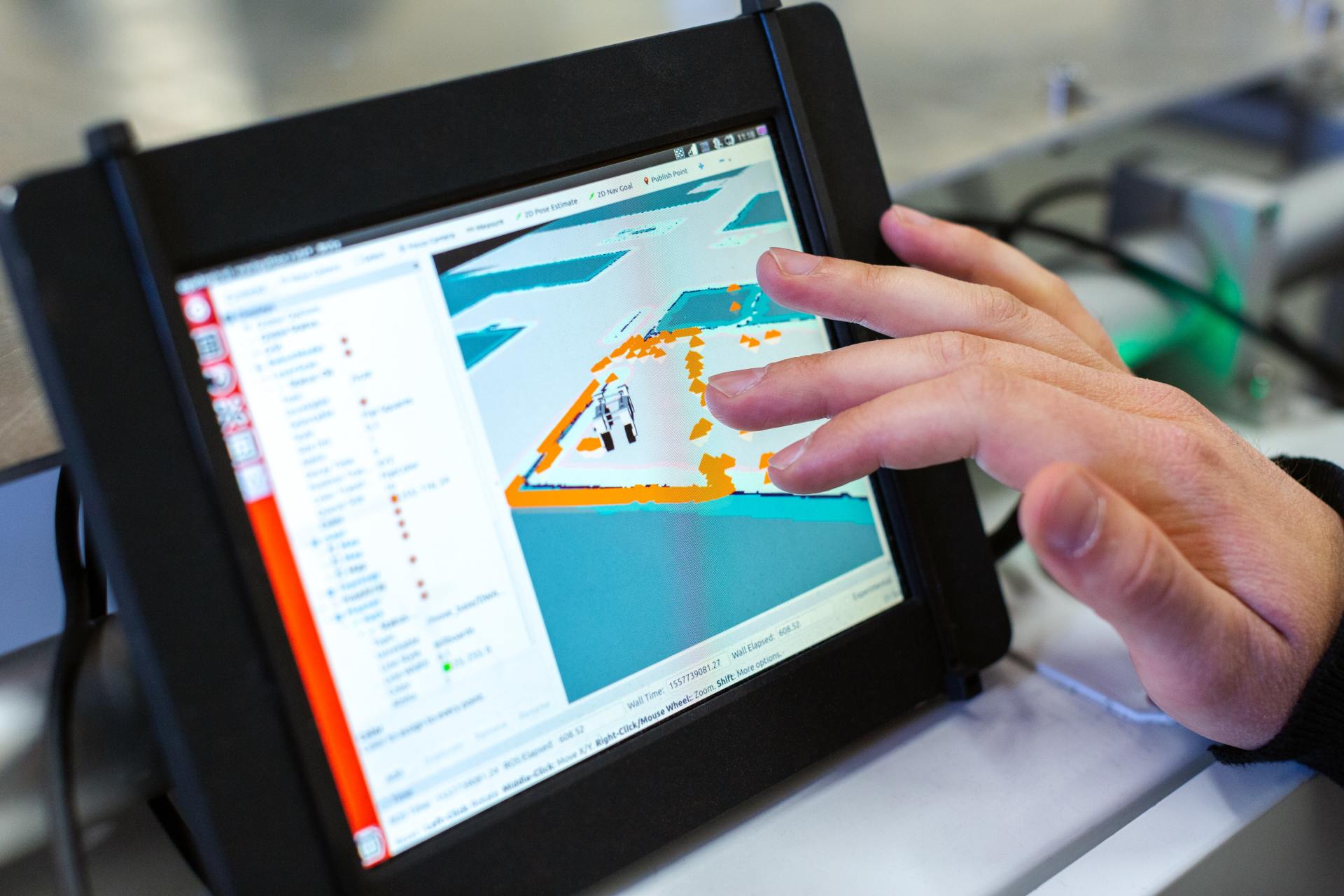1MG FlippingBooks
Data platform to allow for greater understanding of crop yield
Elizabeth Gracie

A new ground-based field phenotyping platform will provide farmers across the country with the ability to measure the performance of their crops in challenging field conditions over an extended period of time.
Plant phenomics is the study of plant growth, performance and composition. The creators of the platform contend that the design is a world first.
The Field Explorer was originally developed alongside Crop Traits and phenotyping systems creation company PhenoKey by the Plant Accelerator, the Australian Plant Phenomics Facility (APPF) at the University of Adelaide.
Dr Darren Plett, APPF’s Technology and Development Lead said that “the Field Explorer is a true turnkey platform, taking plant phenomics to the paddock”.
The Field Explorer uses hydraulically operated high-resolution imaging that allows for concise and consistent data collection across the day regardless of weather conditions.
According to the University of Adelaide, “The FieldExplorer combines LiDAR, a laser version of radar/sonar enabling 3D reconstruction of a plant canopy and used for biomass estimates, with visible near-infrared (VNIR) and short wave infrared (SWIR) hyperspectral imaging and high-resolution RGB imaging”.
RBG imaging is most commonly used for visual trait measurement which can include visual assessments of plant disease.
The VNIR and SWIR technologies will further operate symbiotically to measure the plants invisible traits which include photosynthetic parameters, plant nutrient status and disease symptoms.
APPF Executive Director Susie Robinson said that she expects that there will be strong demand for The Field Explorer that will range from researchers to farmers to crop breeding companies.
“The features the Field Explorer delivers gives us even greater ability to measure critical information about crop growth and health in crop field trials that will contribute to informed decision making on how to improve varieties of crops to increase food production,” said Robinson.
Perhaps the most exciting feature of The Field Explorer is its advanced software platform which is capable of pulling together sophisticated imaging data from a variety for sensors and subsequently fusing the results at a pixel level, resulting in ultra-rich, ultra-clear 3D data sets for farmers to assess and instigate change if needed.
The Field Explorer will continue to be based at the APPF’s The Plant Accelerator node for the remainder of 2020 but will be available for hire in 2021.
NEWS

Prodoz, a Proudly Australian and family-owned agribusiness, based in Melbourne, is strengthening its positions as national/international leader in advanced crop – science solutions through a growing portfolio of global innovation partners and a distribution footprint supported by all major distributors - includes Nutrien Ag, Elders, Lindsay Rural and Independent Rural stores.

Trace minerals are required for optimal growth, reproduction, and immunity. Optimising trace mineral status relying solely on oral supplements across a herd may fail because of variation in individual intake and reduced absorption due to antagonism of other ration components and minerals. The use of injectable trace mineral supplements has been associated with positive reproductive outcomes including improved conception rate, increased odds of pregnancy and greater final in calf rate. A study conducted on 2,168 dairy cows, administered injectable trace minerals, four weeks prior to calving and again four weeks prior to the start of mating showed treated animals had a 3.3 per cent greater final in-calf rate, and a reduced time from start of mating to conception, compared to control animals 1 . The Importance of B12 Dr Carl Eden, Technical Services Veterinarian with Boehringer Ingelheim says “Vitamin B12 is sometimes referred to as a ‘super vitamin’ because it is only required in very small amounts but vital to many essential metabolic pathways. However, demand for B12 can vary considerably during the year and we see serum levels of B12 fall at critical times, such as the first few months after calving.” Vitamin B12 contains cobalt, so deficiency in cobalt can lead to deficiency in vitamin B12 because ruminants get most of their B12 as a byproduct of ruminal fermentation where the bacteria in their rumen assemble B12 from cobalt for use by the cow. Sub-optimal trace mineral and vitamin B12 status at calving, mating, and drying off has been shown to negatively impact growth, reproduction, and immunity. Using a trace mineral injectable containing vitamin B12 can improve trace mineral and vitamin B12 status at these critical times. Marks-Min with Vitamin B12 – The Evidence In the largest trace element study to date, Marks-Min Injectable Trace Mineral with Vitamin B12 demonstrated remarkable results when compared to a reference trace mineral injection. “Given the differences between Marks-Min and other products on the market, we wanted to generate a compelling data set to demonstrate how effective it was compared to the pioneer product. We entrusted this work to a third-party research company” says Dr Eden. “We chose farms that were at the top of their game from a reproductive perspective. We made sure that the farms had no evidence of trace element or vitamin B12 deficiencies or excess.” Across all outcomes of interest, Marks-Min demonstrated clear non-inferiority when compared to the reference product. Outcomes measured included submission, pregnancy and conception rates, and six week in-calf rate. Marks-Min demonstrated it is highly suited as an alternative treatment to the reference product. Reference: 1. Hawkins, D., and B. V. S. Franklin. New Zealand Dairy Veterinarians Newsletter 24 (2007): 12-16 Company website: livestockfirst.com.au Company email address: CustomerCare.Australia@boehringer-ingelheim.com Company video: https://vimeo.com/1138807630?fl=pl&fe=cm














